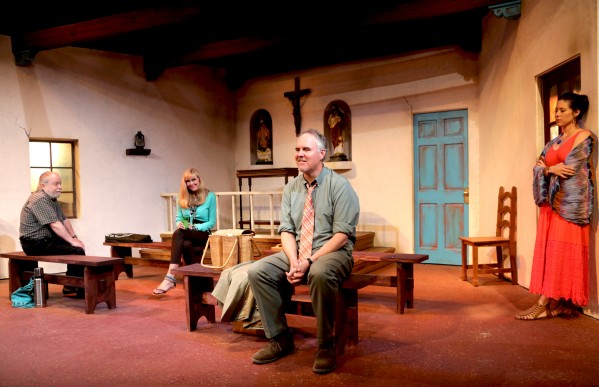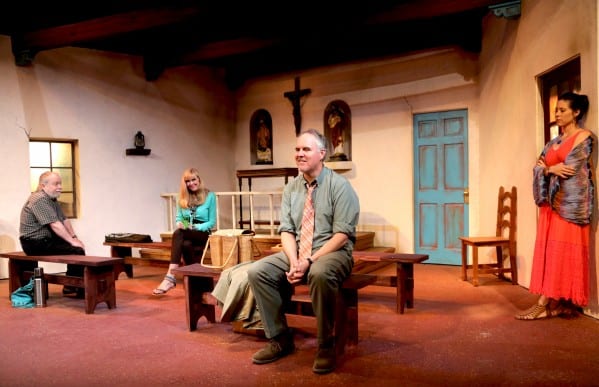 When Angels Fall opened on Broadway in 1983, it wasn’t meant be a period piece, but in the 30 years since, that’s sort of what it has become: Nuclear energy, Native American rights, religion, mental illness — all were buzzworthy topics back then.
When Angels Fall opened on Broadway in 1983, it wasn’t meant be a period piece, but in the 30 years since, that’s sort of what it has become: Nuclear energy, Native American rights, religion, mental illness — all were buzzworthy topics back then.
Wait a minute … aren’t they still?
That’s sometimes the magic of theater: A story that seems rooted in its time continues to resonate for decades later, even when the iconography seems different: Athletes wearing socks up to the knee, people using pay phones, hairdos that haven’t been fashionable since the Reagan Administration. The playwright, Lanford Wilson, speaks about the human condition so simply and honestly, the look matters less than the feeling.
There’s plenty of feeling in this production at Contemporary Theatre of Dallas, directed forthrightly by Rene Moreno. Six folks — college prof Niles (James Crawford) and his young wife Vita (Allison Pistorius), art collector Marion (Sue Loncar) and her boy-toy tennis pro Zappy (Jake Buchanan), and squirrelly genius Don (Ivan Jasso) and his foster parent, Father Doherty (H. Francis Fuselier) — spend an afternoon together in a remote New Mexico mission. The roads are impassable due to a problem at the nearby nuclear reactor. Are these the end times? Or just a reminded that we’re always on the brink?
Angels Fall is the old-school “comedy-drama” in the best sense. Interpersonal relationships fuel the exposition, not vice-versa: We learn about Niles’ mental breakdown and Don’s ambivalence about his future organically, without contrivance or melodrama. (The most theatrical bit is the coincidence that brings them all to church, a completely forgivable conceit.) There’s a richness and authenticity undergirding the lives of these people.
A lot of that is Moreno’s legendary skills at storytelling, but much rests with the cast. The strained marriage between Niles and Vita is brittly parsed by Crawford and Pistorius, and Buchanan gets in man comic riffs; his May-December romance with Loncar feels real. And Fuselier’s whimsical, leprechaunish befuddlement scores over and over.
Rodney Dobbs’ set is amazing, too, but it’s what’s inside that works. Wilson was a prolific playwright who’s seldom talked about in reverential tones; with productions like this (and the recent The Madness of Lady Bright), he may receive the critical reevaluation he deserves.
















